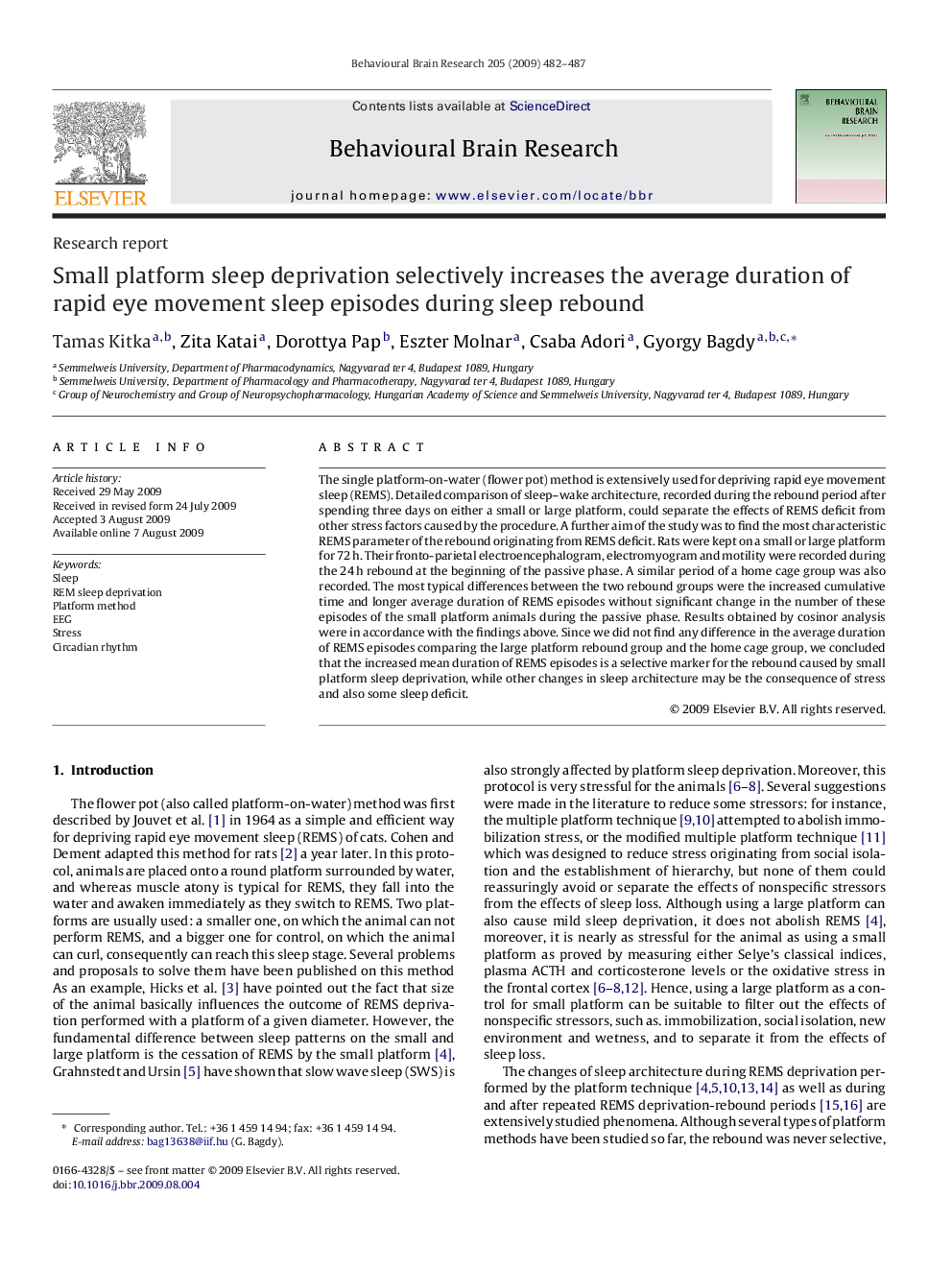| کد مقاله | کد نشریه | سال انتشار | مقاله انگلیسی | نسخه تمام متن |
|---|---|---|---|---|
| 4314422 | 1290035 | 2009 | 6 صفحه PDF | دانلود رایگان |

The single platform-on-water (flower pot) method is extensively used for depriving rapid eye movement sleep (REMS). Detailed comparison of sleep–wake architecture, recorded during the rebound period after spending three days on either a small or large platform, could separate the effects of REMS deficit from other stress factors caused by the procedure. A further aim of the study was to find the most characteristic REMS parameter of the rebound originating from REMS deficit. Rats were kept on a small or large platform for 72 h. Their fronto-parietal electroencephalogram, electromyogram and motility were recorded during the 24 h rebound at the beginning of the passive phase. A similar period of a home cage group was also recorded. The most typical differences between the two rebound groups were the increased cumulative time and longer average duration of REMS episodes without significant change in the number of these episodes of the small platform animals during the passive phase. Results obtained by cosinor analysis were in accordance with the findings above. Since we did not find any difference in the average duration of REMS episodes comparing the large platform rebound group and the home cage group, we concluded that the increased mean duration of REMS episodes is a selective marker for the rebound caused by small platform sleep deprivation, while other changes in sleep architecture may be the consequence of stress and also some sleep deficit.
Journal: Behavioural Brain Research - Volume 205, Issue 2, 28 December 2009, Pages 482–487